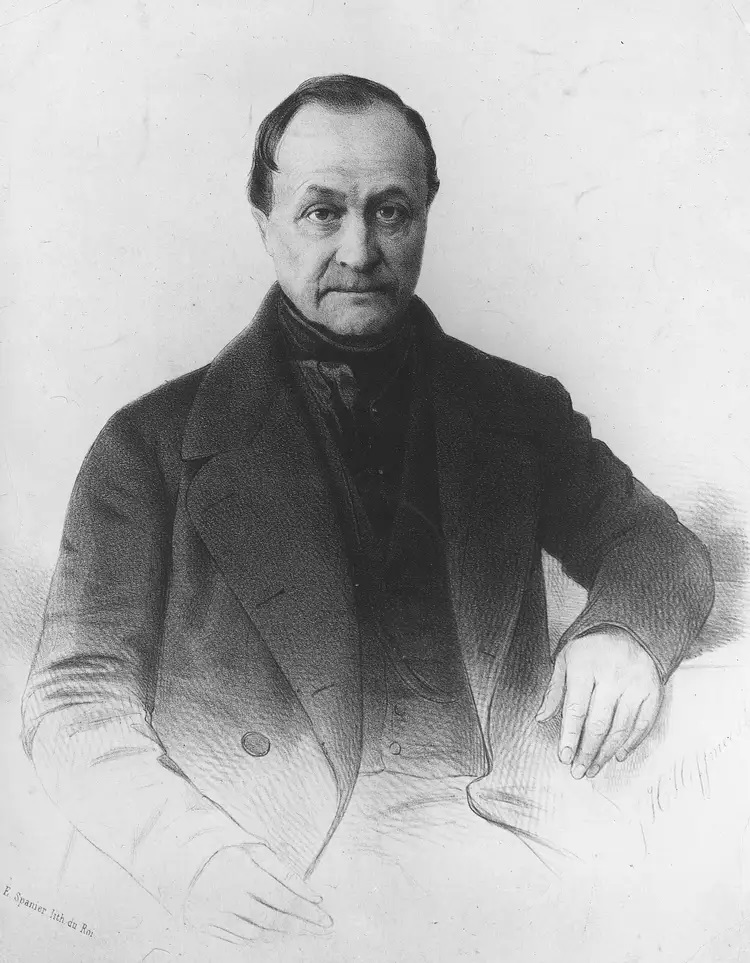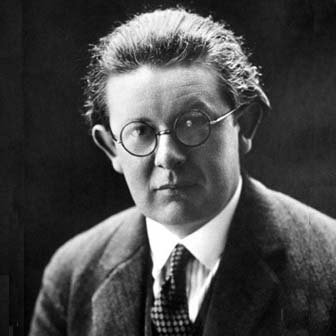
Let me continue with my journey throughout French positivism! Today: Louis Rougier. Fascinating figure who brought logical positivism to France; laid the foundation of neoliberalism; and participated in secret diplomatic missions between Vichy-France and the UK during WWII 🧵 1/ 



Louis Rougier (1889 – 1982) is more or less forgotten. This despite (or because) the controversies during his lifetime; typically seen as far-right figure, mainly due to his connections with the Vichy Regime in WWII and later with the New Right in France (e.g. GRECE) 2/
Together with @MasiglioFicino, I published an article on Rougier in @hoposjournal where we correct this view. it is misleading to label him as ideologically right-wing. Instead, we highlight the history of his projects that led him to that route. 3/ journals.uchicago.edu/doi/10.1086/71…
Rougier became known early. Early work on theory of relativity (1910s) was well-received and translated. But especially his doctorate made an impression. Philipp Frank would describe it as “the best all-round criticism of the school philosophy that I know of” (Frank 1950, 48). 4/
His main dissertation was Les paralogismes du rationalisme (supervised by Gaston Milhaud, later André Lalande). Léon Brunschvicg was on the jury and was very enthusiastic about the thesis. Together with his minor thesis on Poincaré, they were soon published with Alcan. 5/ 



Rougier defends conventionalism: our knowledge is ultimately based on a set of freely chosen conventions. Rationalism, in contrast, confuses the formal necessity of logical deductions with that of the premises on which these deductions are founded. 6/
But Rougier also applies this conventionalism to politics: every political system is ultimately based on a ‘mystique’: a groundless dogma that inspires passionate conviction, but is, in the end, nothing but a convention mistaken for an absolute. 7/ 



Also democracy can become a mystique when people dogmatically believe in the principle of equality or the idea of a people. But in contrast to communism or fascism, democracy is the only system proven to lead to improvement in standards of living. 8/
This is for Rougier the ultimate political criterion: all our conventions must be chosen based on their practical capacity to improve the lives of its citizens. It is this principle that is central, according to us, for all Rougier’s later projects. 9/
We thus argue that his alliance with the Vienna Circle was founded, not so much on shared philosophical theses, but on a shared political project: avoiding the detrimental political effects of metaphysical styles of reasoning and the mystiques they engendered. 10/ 

In the meantime in the German world the mystique of fascism became dominant. The Vienna Circle had to flee. Rougier proposed to organize an international conference on scientific philosophy in Paris. It would eventually take place in 1935, co-organized with Otto Neurath. 11/ 



Together with Marcel Boll and Ernest Vouillemin Rougier started to translate texts from logical empiricists. But this collaboration soon fell apart: Vouillemin used logical positivism for his Catholicism, Rougier tended to monopolize the movement, alienating Boll and Rey. 12/
Rougier attempted to recruit French scholars, e.g. Bachelard, Brunschvicg, Cavaillès or Gonseth. Frustration followed: “I have written more than 100 letters: for some, it is the sacred time of the holidays, others invoke their incompetence.” 13/
French philosophers ignored the attempts. They had their own alternative projects of what #philsci was and how science should be understood. In 1938, the French started to organize a counter-alliance, led by Gonseth and Cavaillès. WWII, however, put a hold on these plans. 14/
We e.g. discuss a revealing correspondence between Otto Neurath and Hélène Metzger. Metzger criticizes logical positivism for reinventing the wheel, neglecting the positive role of metaphysics in the #histsci and found school forming in philosophy fascist. 15/
Rougier’s attempt to convert the world to logical positivism was stranded. But around 1935, Rougier was also betting on an alternative route: the renewal of liberalism. For Rougier, liberalism could be a viable alternative to both the mystiques of socialism and fascism. 16/
Rougier created the Centre international d’études pour la renovation du libéralisme and organized the Walter Lippmann Colloquium in 1938. Rougier was mainly inspired by Lippmann's idea that the economy was not a spontaneous natural order, but a product of a legal order. 17/
This ‘constructive liberalism’ stressed state intervention in the form of a ‘code de la route’: one has to install a number of rules governing the boundary conditions, not the actions of the ‘drivers’ themselves. This would later be known as neoliberalism. 18/
Michel Foucault would famously dedicate a session of The Birth of Biopolitics (21 February 1979) to an analysis of Rougier’s texts. He would strangely describe Rougier as “one of the rare and very good post-war French epistemologists” (p. 161) 19/
but again, his project to renew liberalism was stranded by WWII. In contrast to figures such as Cavaillès or Georges Canguilhem, Rougier did not join. When France surrendered, Rougier attempted instead to weigh on the Vichy regime through political interventions. 20/
Most infamously this would result in the publication of a book Les accords Pétain, Churchill: Histoire d’une mission secrète (1945), the first of many publications that would bring Rougier closer to the épurés and the extreme-right in France after the war. 21/ 



What persuaded Rougier to write that book? We argue that it was not political ideology, but an attempt to extend his positivist philosophy to the political sphere: do not let yourself get caught by a mystique, but act with the practical improvement of human lives in mind. 22/
Specifically: he aimed to break the Allied blockade of the French fleet and colonies. The result was food shortages. Only by starving France could one defeat Germany. Rougier, however, feared that this would be nothing but “peace built on a children’s graveyard” (1947, 53). 23/
Rougier proposed to Pétain to negotiate with the British Government. According to Rougier, he met Churchill on October 25 1940 and came to a ‘gentlemen’s agreement’: France would not surrender its assets to the Axis powers, and the British would lift the blockade. 24/
After this, Rougier was able to go to the USA on a scholarship, at the New School. There he faced once again the opposition of French ideologues who, in his eyes, were quite willing to let French children starve to prove their ‘ideological’ purity. 25/
Due to the trial of Pierre-Étienne Flandin (former Vichy prime minister), Rougier revealed his secret mission. But British authorities initially denied that such negotiations ever happened. Rougier also fabricated some documents to strengthen his case. 26/
As a result, Rougier’s reputation was ruined. He was in fact trialed after the war for ‘his unwarranted attempt to intervene in diplomatic discussions’ and for ‘criticizing the Comité Français de Libération Nationale’. Both issues concerned the food scarcity and the blockade. 27/
As a result, he was isolated after the war, and the only remaining group willing to discuss and publish his ideas were far-right thinkers, such as Alain de Benoist. They especially appreciated his claim that also Christianity and Scholasticism were a mystique. 28/END 



You can find earlier threads, e.g. on Abel Rey, Marcel Boll or Général Vouillemin here:
https://twitter.com/MassSimons/status/1424613295236034561
• • •
Missing some Tweet in this thread? You can try to
force a refresh





